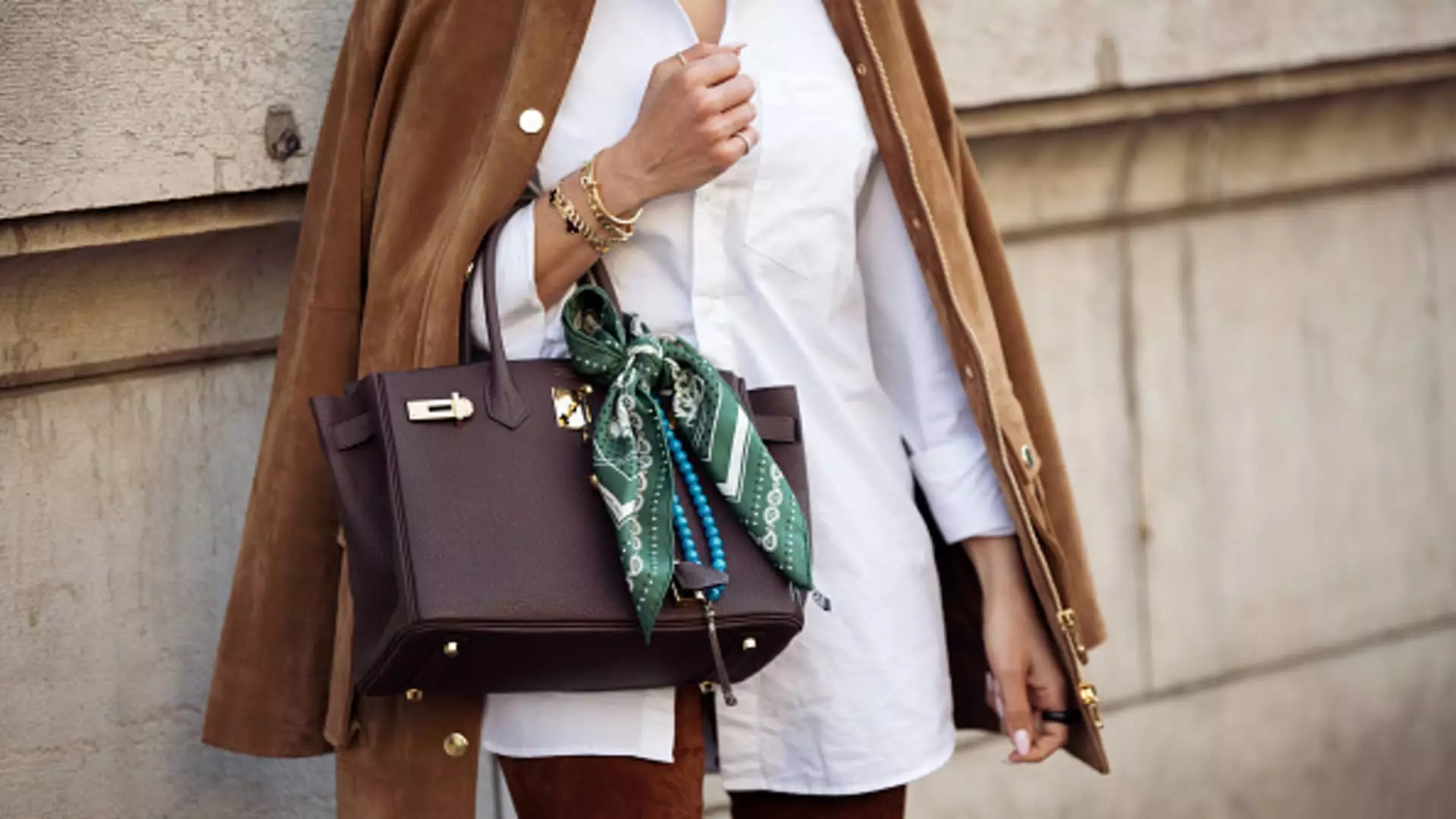In a world where wealth is power, the French luxury giant Hermès has made headlines by announcing a price increase on its exclusive goods within the U.S. starting May 1st. At first glance, this may appear to be a straightforward business maneuver to offset tariffs imposed by the Trump administration, but it unveils a deeper narrative that reflects the shifting dynamics of the luxury market under economic pressure. As tariffs blanket a plethora of products, the decision by Hermès underscores more than just a fiscal response; it epitomizes the entitlement of elite brands to protect their profitability at the expense of the average consumer.
Balancing Profit and Prestige
With a recent boost in sales statistics—a promising 11% growth for the Americas—Hermès has strategically positioned itself at the helm of the luxury industry, overtaking its longstanding competitor, LVMH. This triumph, however, comes with the burden of responsibility to maintain its brand allure while navigating fluctuating economic circumstances. The price alterations to its highly coveted products, such as the famed Birkin and Kelly handbags, reveal a contradiction inherent in luxury capitalism: the more exclusive a product becomes, the more out of reach it sits for mainstream consumers. The company’s pricing strategy demonstrates a willingness to pass increased costs directly to consumers, effectively illustrating the divide between high-end aspirations and everyday realities.
The Consequences of Tariff Politics
The tariffs instituted by the U.S. government mark a critical turning point, not only in the fashion world but also in the consumer’s relationship with luxury brands. As the elite continue to purchase high-end handbags and colorful scarves, the average American shopper faces an uphill battle with rising costs that permeate various sectors, including electronics, automobiles, and everyday clothing. Hermès, albeit unintentionally, plays into a narrative of inequality—one where affluent consumers remain insulated from economic strife, able to absorb higher prices, while the average person grapples with the implications of such policies.
Market Competition in the Luxury Space
Despite its glowing first-quarter sales, Hermès’ revenues remain dwarfed by those of its rival LVMH, which boasts a diverse portfolio that includes not only luxury fashion but also alcohol and beauty brands. Hermès may flaunt a higher market capitalization, but it is evident that the company’s annual revenue remains alarmingly lower than that of LVMH. This suggests that the market environment is not merely about prestige and valuation; it is about operational breadth and the ability to weather turbulent economic tides. By raising prices, Hermès risks alienating potential customers who may seek out alternatives in a climate where discretionary spending becomes increasingly cautious.
Resilience Amid Economic Doldrums
Analysts suggest that the luxury sector may bemostly resilient to tariff impacts, as affluent customers are often willing to bear increased costs. However, they also raise red flags regarding the broader consumer sentiment and potential recession concerns that could hinder sales. As the global economy faces upheaval, luxury brands like Hermès must tread lightly; overreach can lead to backlash from consumers who, despite their wealth, may grow weary of seeing premium price tags affixed to time-honored symbols of affluence.
The Burden of Expectations
In a sense, the imminent Hermès price hike serves as a bellwether for the luxury industry at large, raising questions about sustainability and consumer expectation. As wealthy consumers continue to indulge in high-end products, how long will it be before even the most elite brands face repercussions for maintaining exorbitant prices? The dilemma is one of survival: how can brands balance the allure of exclusivity with the risk of ostracizing their wealthy yet price-sensitive clientele? In this ever-evolving landscape, the true test of luxury brands will not merely be their market share, but their capacity to adapt, innovate, and remain relevant in a world that continuously wrestles with economic disparity.

